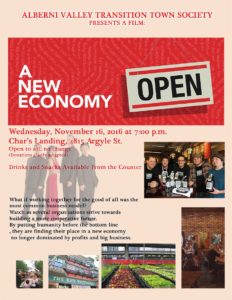
Milton Friedman and Friedrich Hayek, amongst others, have long taught that we need to live in a society of unfettered markets, markets defined by and tailored to suit the needs of those whose principal drive is the accumulation of wealth, and therefore power, in the hands of the same people writing the definitions and the laws and processes that derive therefrom. How is this working for you? How is it working for your neighbours, friends, colleagues and fellow citizens. Is it looking as though, words aside, it is taking us to a rosy future of economic, social and environmental security? We will have different answers, of course, and likely depending upon where we sit in the economic hierarchy, and many of us not only have never known any other model, but may also not have considered any other model, along the lines of Margaret Thatcher’s pronouncement about there being no alternative and Francis Fukuyama’s jubilant declaration that we’ve reached the end of history, what with the fall of the Soviet Union.
There are rumblings: Anonymous, Idle No More and a host of protests about particular issues and projects, as is the current No Dakota Pipeline movement in the Dakotas and fanning out into Indigenous communities, and, slowly it is dawning on some groups that they will continue to burn the soles of their feet stamping out wildfires as long as there is systemic creation of irritants. Most of us are so busy with the concerns of day-to-day life, paying the bills, raising the children, ensuring that work is going as well as it can and trying to maintain a decent standard of living with, perhaps, some recreation built into the mix, that we hardly have time to investigate matters of governance, of resource usage and allocation, of attempts to manage the living system that hosts us. Additionally, since our neighbours share the same concerns and burdens as we have, the larger topics are unlikely to make it onto the docket for Friday conversation over coffee, or beer, or dinner. It is no help that what confronts us when we dial in the television, the radio, or go to our favourite respected news site on the Web is an amalgam of feel-good human interest stories, cat videos, fluff posts about health studies, updates on distant wars and terror attacks, threats from asteroids and earthquakes, and inducements to buy as much as you can afford, and then some.
Perhaps everything, as the fictitious philosopher Pangloss oft iterated, is arranged for the best in this, the best of all possible worlds. There are those who suspect that there are several things rotten in the Kingdom of Figurative Denmark and whose fears might be quelled by some open dialogue that at least challenges the accepted doctrines of the Chicago School and the Washington Consensus. This falls under the heading of the life needing to be examined in order to gain legitimacy. The prescription is neither endorsement nor condemnation, but the examination through dialogue of what the possibilities might be.
To that end, I would like to invite all and sundry to an event, a ninety-minute film screening with the possibility of a conversation to follow in what seem to be rather convivial surroundings:

The film is biased as heck in favour of co-operatives. No one has to agree, because alternatives have to withstand challenge. However the simple act of discussion might produce some interesting possibilities. There is no cost to get in, and you don’t really have to buy anything, though I know Char would welcome your custom and support. No one is taking attendance, and you can leave at any time. Or you can stay and be a champion of your ideas.
Hope to see you there.









